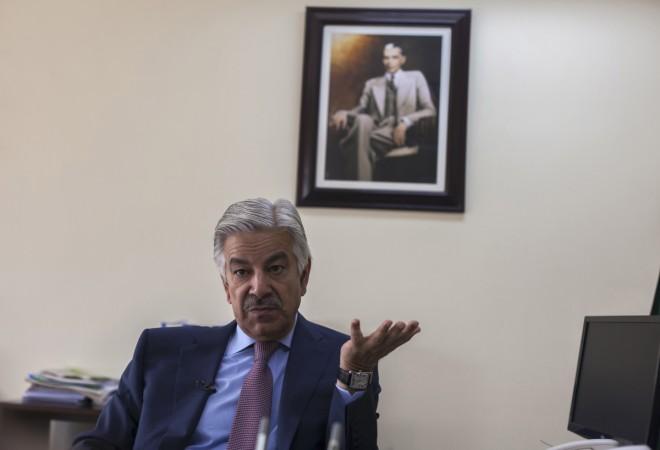
Pakistan Defence Minister Khawaja Asif on Tuesday responded to Sushma Swaraj's speech at the United Nations General Assembly in New York by saying that India had planned the Uri terrorist acts of September 18, which resulted in the death of 18 Indian soldiers.
Speaking to Dawn News, Khawaja said that despite the many claims of Indian leaders regarding the terror attack on Indian Army camp in Uri town of Jammu and Kashmir, there are no evidences implicating Pakistan in the attack. "Five or 10 voices raised against us are not enough evidence to declare Pakistan a terrorist state," he said.
Khwaja further added that it is evident that India had devised the attacks and blamed it on the Pakistan based militant group Jaish-e-Mohammad. He also claimed that India is not as serious about solving the Kashmir issue as Pakistan is, adding that even China supports Pakistan on the issue, which Prime Minister Nawaz Sharif raised during his address at the General Assembly.
Tensions between India and Pakistan soared up following the attacks of September 18, wherein four terrorists suspected to be from Pakistan's side of the border attacked the Indian Army camp. While the Central government has so far largely followed diplomatic moves to isolate Pakistan, some parties, like the Maharashtra Navnirman Sena, have been vocal about the need for retaliation.
Minister of External Affairs Sushma Swaraj pointed this issue out during her speech at the General Assembly, saying Pakistan is harbouring terrorism. She even demanded that Pakistan be isolated form the rest of the world.
Meanwhile, Indian Prime Minister Narendra Modi, in an attempt to show citizens the silver lining, said during his speech on Saturday, September 24, that India already has its revenge. Claiming that in a race against poverty and unemployment, India is already ahead of its neighbour, Modi pointed out, adding that there is a clear distinction between the innocent people of Pakistan and its monster of an army and state.
"If we wish to do justice to the martyrs at Uri, and to the thousands of brave young soldiers that have given their lives for the nation, we must first understand what they died for. Our soldiers did not die defending a vengeful, trigger-happy nation. They died defending our right to create a peaceful, stable, united, prosperous, and respected nation. A nation that can absorb a blow and move steadily forward," he said.















